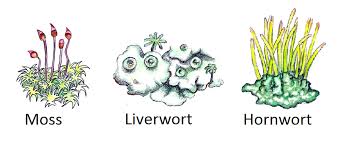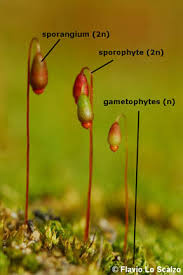fourth block: thank you so much for the card- Mrs. Faulkner took a pix and sent it to me- you made me giggle!!!
Homework For tonight
- finish any videos you couldn't finish in class or re-watch them if you think you need more notes
- Those taking the AP exam:subject yourself to as much Bozeman as you can handle- do the ones in the AP Biology lab section or the supplemental resources section as I probably won't have you watching those in class.
Sub Plan for Wednesday:
AP BIOLOGY 2nd block: ( 4th block will have to watch the videos for homework wed. night)
AS USUAL, PAUSE AS NEEDED TO MAKE SURE YOU ARE GETTING GOOD NOTES.
plant structure:
Terms to focus on, write these down BEFORE watching and be able to explain what they make and do: sclerenchyma, parenchyma, collenchyma, double fertilization, endosperm, embryo, primary growth and secondary growth
14 min.
http://www.bozemanscience.com/plant-structure
non-vascular plant reproduction:
Terms to focus on, write these down and be able to explain what they are or do: Bryophytes, sporophytes, gametophytes, "alternation of generations"
10 min. "HANK"
https://www.youtube.com/watch?v=iWaX97p6y9U
Now for a video intermission: Take about 30 min for this.
draw out the life cycle of a non-vascular plant! use a blank piece of copy paper- btw's we're running out, so please bring some in if you haven't already:)
color code your parts sporophytes one color, female gametophytes and male gametophytes should be different colors.
use this image as a guide!

THIS IMAGE IS JUST TO HELP YOU SEE WHAT THE REAL-LIFE VERSION LOOKS LIKE.


Wrap up with class with this video- remember: if you run out of time in class you will NEED to finish it for homework:
vascular plants: focus on how the vascular plants reproduce, pay attention to the "evolutionary" aspects he talks about, pause at the flower (at around 7:30) and draw and label the parts!
https://www.youtube.com/watch?v=ExaQ8shhkw8
SUB PLAN FOR AP ENVIRONMENTAL SCIENCE
First off, I saw this write up and found it enlightening and disturbing, so I thought I would share it with you. You can check it out at your leisure from home.
http://blog.ted.com/2014/01/31/will-potter-on-of-treating-environmentalists-like-terrorists/
His book will probably be one of my summer reads.
For today in class:
REMEMBER TO TAKE GOOD NOTES, PAUSE AS NEEDED, YOU WILL BE TESTED ON ALL MATERIAL COVERED IN CLASS-
IF YOU DON'T GET THROUGH IT DURING CLASS IT WILL BE YOUR HOMEWORK
PESTICIDES ETC. 11 MIN
https://www.youtube.com/watch?v=dWZsy_MB0K4
Integrated Pest Management 6 min
https://www.youtube.com/watch?v=WJm2VbVAXc0
Biological pest control 5 min
https://www.youtube.com/watch?v=Ot9BhukH588
15 min TED: Intermission from note taking, just watch and listen- (even my chatty gals!)
http://www.ted.com/talks/shimon_steinberg_natural_pest_control_using_bugs
Switching speeds now, a little on Charcoal- take notes! 9 min ( pause as needed)
https://www.youtube.com/watch?v=EMrnYmO6GOo
15 min TED: Intermission from note taking, just watch and listen-THE LAST 4 MINUTES are worthy of extra attention!
http://www.ted.com/talks/amy_smith_shares_simple_lifesaving_design
Working for her would be like Environmental Mission work- awesome!